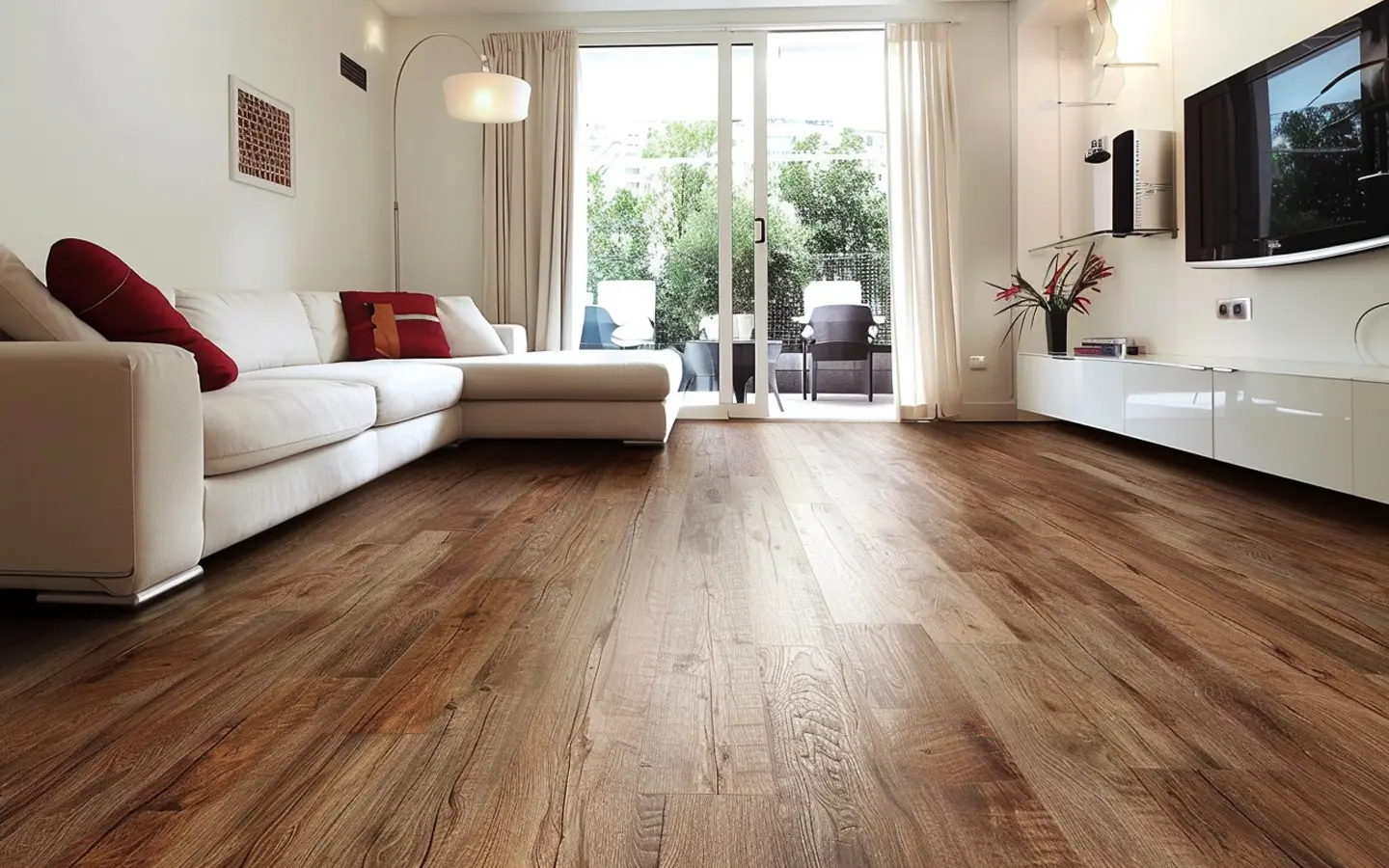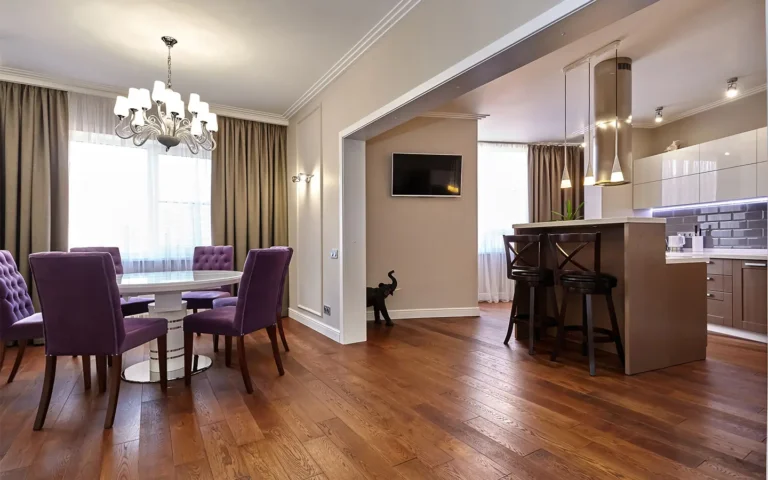Engineered Vinyl Plank (EVP) flooring is a type of flooring that is highly durable, while giving your floors a cozy, natural look. In this article we’ll be delving into what EVP flooring is, going over its pros and cons, as well as comparing it with Luxury Vinyl Plank (LVP) flooring – while offering a comprehensive overview of each.
What is EVP Flooring?
EVP stands for Engineered Vinyl Plank flooring. It consists of a multi-layer structure that typically includes a core of engineered polymer composite, a vinyl top layer, and a protective wear layer.
This allows EVP to mimic the appearance of natural materials like wood or stone while providing enhanced structural stability and water resistance.
The core, made of a polymer mix, makes EVP a great choice for places where moisture might be a concern; such as kitchens, bathrooms, and basements.
EVP Flooring Pros and Cons
EVP, just like any other flooring option, has its upsides and downsides:
Pros:
Water Resistance: EVP is highly water-resistant, which makes it suitable for use in damp environments.
Durability: The wear layer on EVP flooring gives it a high level of protection against scratches, dents, and stains.
Comfort: EVP floors are warmer and softer underfoot than traditional hardwood or tile floors, making it more comfortable to walk on.
Ease of Installation: Most EVP flooring options have click-lock edges, making its installation a breeze, even for DIYers.
Aesthetic Variety: EVP flooring comes in a variety of styles and colors. It can also mimic the look of more expensive natural flooring materials.
Cons:
Cost: EVP is cheaper than natural wood, but it can be more expensive than other vinyl products.
Repair Difficulty: If damaged, EVP planks can be difficult to repair and usually need to be changed completely.
Environmental Impact: Manufacturing of vinyl products, including EVP, is not very environmentally friendly due to the use of plastics and other chemicals.
LVP vs. EVP
When it comes to choosing between Luxury Vinyl Plank and Engineered Vinyl Plank, there are a few key differences to keep in mind:
Core Composition: LVP often contains a softer, more flexible core as opposed to the rigid core of EVP. This makes EVP more stable and resistant to temperature variations.
Thickness and Durability: EVP planks are usually thicker than LVP options, adding to their durability. This can be particularly important in high-traffic areas.
Cost: On average, EVP is a more expensive option than LVP, but prices may vary depending on the brand and the specific product line.
Conclusion
EVP flooring offers a great combination of functionality and aesthetics that will suit most modern homes and office spaces. Its water resistance and durability make it an excellent choice for areas susceptible to moisture and wear.
While it does carry a higher price tag and has some environmental drawbacks, the benefits of EVP often outweigh these concerns for many consumers.
In the realm of vinyl flooring, both LVP and EVP provide valuable options, with EVP leading in areas requiring more rigidity and longevity. Whether you’re renovating an old space or constructing a new one, considering the various aspects of EVP can guide you to a flooring solution that combines beauty with practicality.
About The Author

Courtney Daily
April 21, 2024
Courtney is a freelance writer who wears many other hats: kindergarten teacher by day, Broadway diva in the shower. She is a transplant Hoosier who originated in New England. When she isn't writing in her spare time, you will find her reading history books, arguing with her latest knitting project, or being beaten by her kids at most games.



